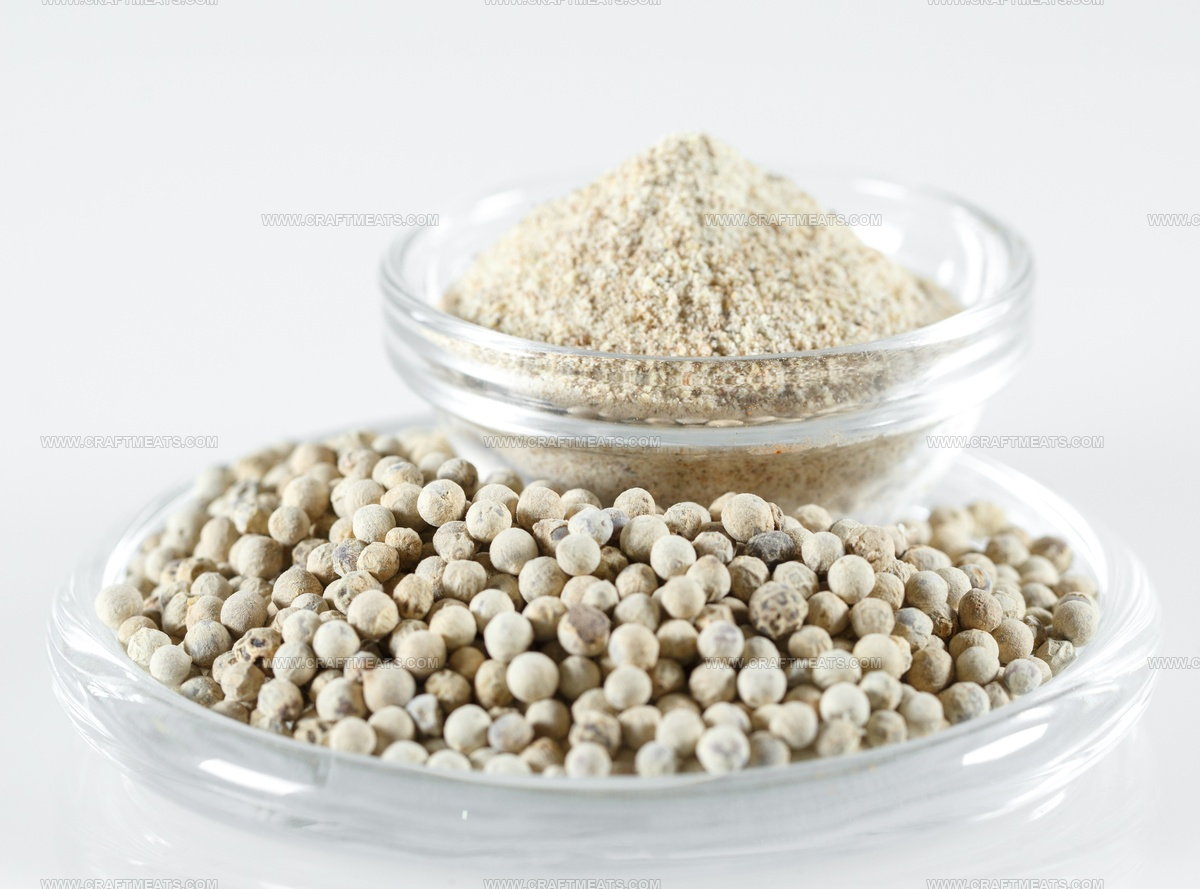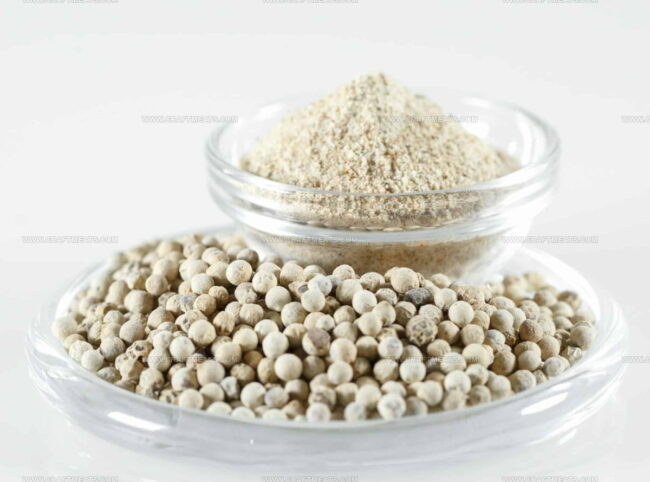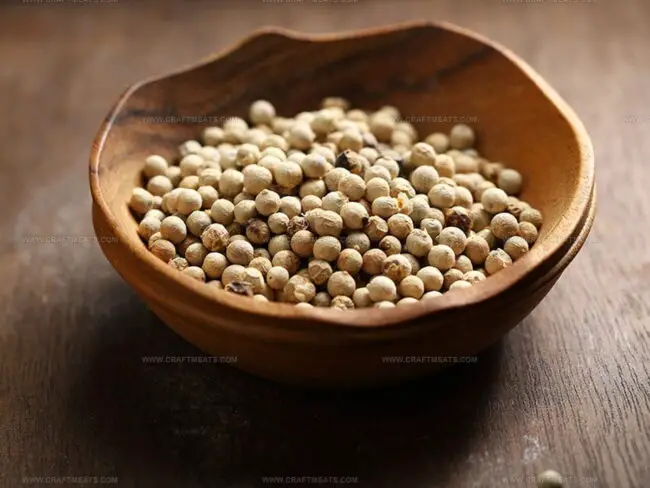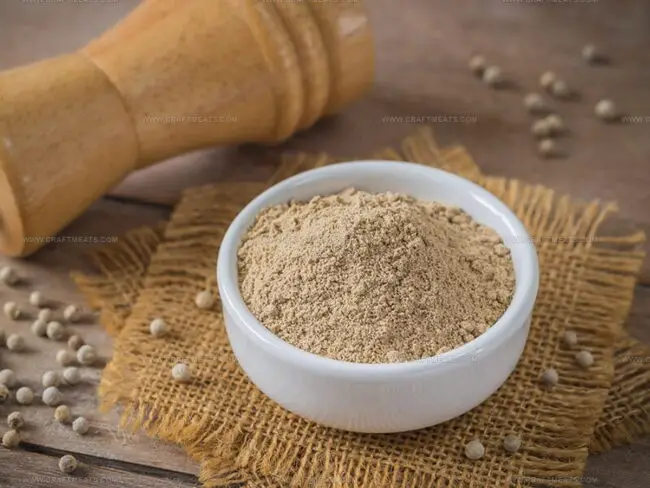White Pepper Taste: The Gentle Spice That Packs a Punch!
White pepper, a seemingly ordinary spice, carries surprising culinary secrets that might transform how you approach seasoning.
Chefs and home cooks often debate its unique characteristics and subtle differences from black pepper.
This understated ingredient holds more complexity than most people realize.
Understanding its origins and nuanced flavor profile can elevate your cooking skills dramatically.
Professional kitchens frequently utilize white pepper for specific dishes where appearance matters as much as taste.
Its distinctive qualities make it a remarkable ingredient in many international cuisines.
Unraveling the mysteries of white pepper promises to spark your curiosity and potentially revolutionize your approach to cooking.
What Is White Pepper?
Pepper comes from one special plant called piper nigrum, which sounds surprising.
Small berries grow on this vine and turn into different types of pepper after careful processing.
White pepper starts with ripe berries from pepper plants.
Workers carefully remove the outer skin, leaving just the inner seed.
These seeds dry out to create white peppercorns.
White pepper looks different from black pepper because its color stays light.
Chefs love white pepper for its soft, gentle flavor with mild warmth.
Kitchens use white pepper when they want seasoning without dark spots in delicate sauces or light-colored dishes.
Small black specks would stand out in cream soups or white meals, so white pepper becomes the perfect choice.
Taste of White Pepper
White pepper carries a subtler taste compared to black pepper, with fewer intense flavors.
Chefs appreciate its delicate spice profile for stir-fries and dishes needing a softer seasoning kick.
Trying white pepper could surprise you when regular black pepper seems too strong.
Pepper experts disagree about white pepper's heat level.
Some say it tastes milder, while others argue it packs more spice.
White pepper brings a unique flavor experience to cooking.
Depending on how manufacturers process it, the taste can range from musty to earthy or grassy.
Sampling different white pepper sources helps you find a version you enjoy.
Connections between white pepper and Asian cooking have shaped many people's flavor expectations.
Whole vs. Ground White Pepper: Taste Impact
White pepper comes in two forms, whole peppercorns and ground powder, and the way you use them changes the taste of your food.
Whole white peppercorns have a subtle, gentle heat and release flavor slowly when cooked, making them perfect for soups or stews where you want a mellow spice.
Ground white pepper, on the other hand, has a sharper, slightly musty taste that hits you faster and can sometimes taste stronger or even a bit earthy.
If you use whole peppercorns, the flavor is smoother and less noticeable, while ground white pepper gives your dish a quick burst of spice and blends right in.
Each form works best in different recipes, so choose based on the flavor strength and texture you want.
How White Pepper Smells
Some chefs notice a harsh smell when sniffing white pepper, while most others do not detect any odd scent.
White pepper shares a similar molecule with rotundone found in shiraz white.
White peppercorns go through a soaking process to remove outer skins during fermentation, which leads to rotundone formation.
Fermentation can cause white pepper to develop a burned or nearly medicinal smell if too much rotundone develops.
Where White Pepper Comes From
White pepper comes from the same pepper plant that creates black pepper. Pepper fruit looks identical before processing happens.
Differences emerge after harvest stages. White pepper reaches full ripeness and follows an extra step before reaching kitchen shelves, while black pepper keeps its original skin intact.
Processing white pepper requires removing outer skin through specific methods:
Health Benefits of White Pepper
White pepper offers more than just subtle flavor.
Uncover its unique health advantages in your daily meals.
Rich In Antioxidants
Molecules called antioxidants help protect bodies from harmful substances known as free radicals.
Higher amounts of free radicals can cause damage inside human systems.
Dangerous free radical effects connect to multiple health conditions such as heart problems, diabetes, and weight challenges.
Research indicates white pepper contains more antioxidant power compared to black pepper, showing its stronger capacity to battle against dangerous molecules in our bodies.
Helps Reduce Swelling
Our body's reaction to illness often involves inflammation, which can serve helpful or damaging purposes.
Short-term inflammation helps fight health challenges, but ongoing inflammation might create serious health risks.
Medical research shows white pepper contains piperine, a compound with strong anti-inflammatory characteristics.
White pepper can work to lower body inflammation levels.
Research also suggests white pepper might ease muscle discomfort connected to physical strain and movement.
Gets Rid Of Gas
White pepper supports relief from uncomfortable gas problems.
Its special compound piperine helps calm stomach issues.
This natural spice encourages healthy stomach acid production, which makes digestion work better and keeps intestinal processes running smoothly.
Makes Digestion Easier
White pepper helps your stomach work better by boosting acid that breaks down food.
Stomach acid plays an important role in breaking down what you eat.
Pepper includes helpful fiber that supports intestinal health.
Fiber keeps your digestive system moving smoothly and helps your body process meals more effectively.
Small amounts of white pepper can make digestion feel more comfortable and help your body absorb nutrients.
Supports People With Low Appetite
White pepper helps your stomach work better and makes you feel hungry.
This spice could support people dealing with low appetite.
Adding white pepper to meals might help reduce problems connected to not wanting to eat.
Lowers Cancer Risk
White pepper could play a key role in cancer prevention.
Chemical compounds inside white pepper stop harmful free radicals from developing in our bodies.
Natural components like capsaicin work to protect cells from damage.
Research suggests white pepper might help fight against prostate cancer, which impacts many men around the world.
Regular consumption of white pepper supports overall prostate health.
Medical studies also show white pepper supports digestive system functioning and could potentially help prevent colon cancer.
Helps Lower Blood Pressure
White pepper contains rich amounts of flavonoids, vitamin A, and vitamin C, which support lowering high blood pressure.
Research suggests this spice could help control blood pressure levels effectively.
Good For Heart Health
White pepper works well for heart health by fighting swelling in the body.
Its special qualities help keep blood pressure lower and support better heart function.
White pepper supports healthy blood flow through its natural ability to reduce blood pressure.
This spice might help prevent serious heart problems like heart attacks and strokes.
Older adults could find white pepper especially helpful for maintaining good heart wellness.
Can Prevent Headaches
White pepper carries capsaicin, a special chemical compound.
Capsaicin helps stop painful head problems.
Capsaicin makes blood vessels stretch and open wider.
Its action comes from nerve system effects, which boost blood movement through body channels.
White pepper works as a natural solution for stopping headache pain.
Helps Manage Arthritis
White pepper stands out as a natural helper for joint and spinal discomfort.
Piperine within this spice delivers significant health perks.
Scientific research highlights piperine's ability to reduce pain sensations and fight arthritis-related symptoms.
Arthritis and gout sufferers might find some relief through this ingredient.
Capsaicin in pepper could also play a supportive role in managing pain.
Older adults may especially benefit from white pepper's healing properties.
Muscle development receives a boost from this simple spice.
Regular use can enhance physical movement and reduce uncomfortable muscle tightness.
Good For Colds And Breathing Problems
White pepper works well for breathing problems linked to mucus.
Medical research shows this spice helps clear lung congestion.
Winter season brings many respiratory challenges where white pepper can offer support.
Pepper supports clearing blocked nasal passages and reduces cold symptoms.
Small amounts can help prevent and fight off coughs by helping lungs work more smoothly.
Fights Bacteria
White pepper stops harmful germs from spreading and growing.
Research shows this spice can block bacterial growth effectively.
Scientists found white pepper might work well as a natural bug killer.
Small amounts of white pepper create powerful protection against microorganisms that could cause damage.
Can Help Your Brain Work Better
White pepper might support brain health by boosting mental performance.
Studies suggest this spice could help protect brain cells from breaking down.
Scientists continue researching how white pepper connects with brain function and potential health benefits.
Raises Energy Naturally
White pepper boosts cell energy creation.
It plays a key role in powering cellular processes.
Manganese exists inside white pepper as well.
This mineral helps many enzymes generate energy within cell structures.
White Pepper vs. Black Pepper
Pepper varieties share a surprising connection despite their distinct characteristics.
Both black and white peppers originate from the same plant, creating an interesting flavor profile for cooks.
Subtle differences set these spices apart in kitchen preparations.
White pepper offers a more delicate taste compared to its bolder black counterpart.
Chefs often select white pepper for lighter dishes that require a gentler seasoning approach.
Asian cooking frequently incorporates these two pepper types with great skill.
Meal makers appreciate how each spice contributes unique notes to their recipes.
Black and white peppers complement different cooking styles, making them essential ingredients in many kitchens.
Shoppers can easily find both varieties in grocery stores and spice markets.
White pepper brings a special quality to cooking experiences.
Mild flavors distinguish this spice from its more intense black pepper cousin.
Experienced cooks understand its unique aroma adds depth to certain recipes.
Slight funkiness emerges when white pepper touches hot dishes.
Spice lovers appreciate how white pepper works wonderfully in hot and sour recipes.
Small amounts can dramatically change meal sensations, making it a secret weapon for creative cooks.
White Pepper Safety Tips
Using White Pepper in Cooking
White pepper brings a unique taste to cooking when added after meals finish cooking. Cooks choose this spice to avoid bitter notes that happen with overheating.
White pepper works especially well in smooth dishes like creamy soups, vichyssoise, mashed potatoes, and clam chowder. Chefs also prefer white pepper in Asian recipes because of its special heat and flavor profile.
Specific dishes showcase white pepper's qualities:
This spice offers a subtle yet distinct flavor that differs from black pepper. White pepper works quietly in many classic recipes, adding depth without overpowering other ingredients.
Cooks value its ability to enhance dishes with a gentle, smooth heat that complements creamy and delicate meals.





Liam O’Sullivan
Founder & Culinary Content Creator
Expertise
Recipe Development, Traditional Irish and European Cuisines, Food Styling and Photography, Culinary Education
Education
Dublin Institute of Technology (DIT) – School of Culinary Arts and Food Technology
Ballymaloe Cookery School
Isabella brings a global spark to the Craft Meats table. Born in Florence and trained at the Apicius International School of Hospitality, she blends classic Italian flavor with modern writing that’s easy to follow and hard to forget.
Her additional training at the Italian Chef Academy fueled her love for well-crafted dishes, especially ones that spotlight beautiful cuts of meat.
She’s a food writer with heart, and a deep love for storytelling through single recipes. Her goal? To help you cook with more confidence and a little more joy, no matter where you start.